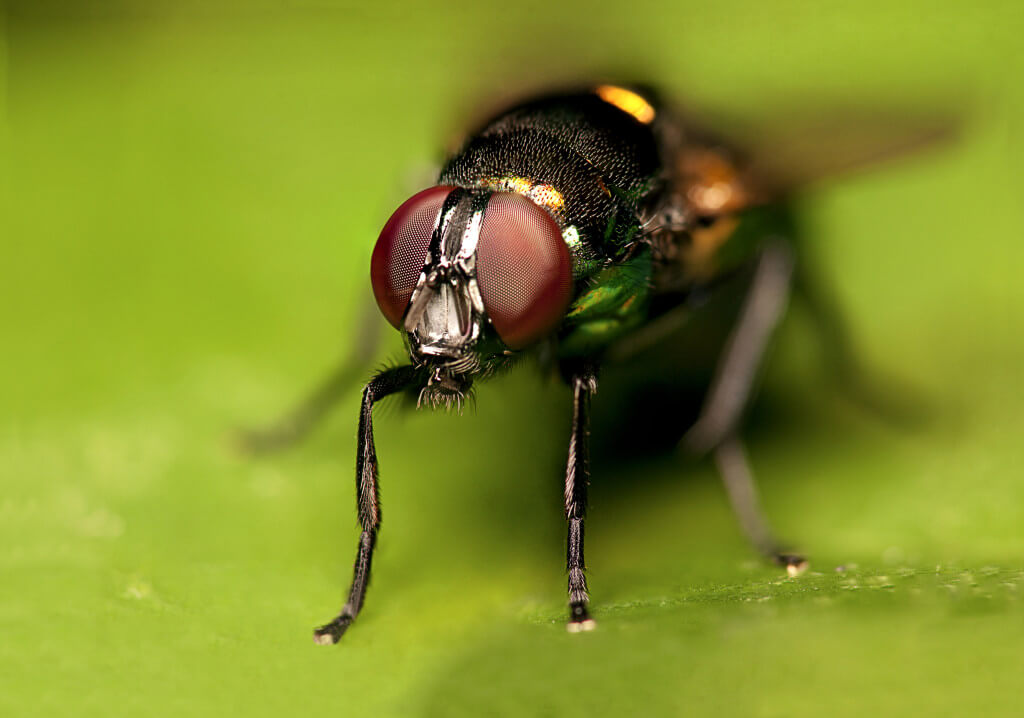An inspection of the area will show where flies congregate and the materials that attract that species eg. dog manure in the yard. These areas and the breeding areas are targeted first. Sprays are directed at the breeding site of the maggots eg bins as well as where the adults land and rest. Areas treated includes walls, around door and window frames, in and around rubbish bins and in bands along window sills where flies gather.
Whether a treatment is successful or not is dependant on several factors:
• general area conditions – the number of flies in the environment (including breeding sites and attractions nearby) eg. if the property is situated next to a dog boarding kennel, there may be more flies.
• local attraction of flies – manure of pets, poultry and other animals attracts flies and is a potential breeding site eg a property with dog manure in the yard will attract flies to that property and to the neighbouring property.
• actions to reduce flies outdoors- use of baits, lures and insecticides where flies congregate; as well as the reduction of available harbourages (long grass etc).
• level of exclusion (eg flyscreens).

